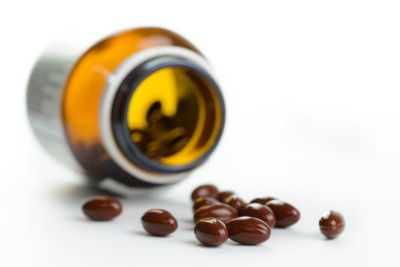Ubiquinol: Dietary supplementation can prevent heart failure
More people died of heart disease in Germany in 2017 than the year before. Women in particular are affected. The most common heart-related cause of death is coronary heart disease, which leads to heart attack, followed by heart failure (cardiac insufficiency). (1) Many people perceive a “weak heart” as a normal sign of aging, but this is by no means the case. In contrast: early and consistent prevention can significantly reduce heart failure and its serious consequences.
Natural micronutrient can mitigate long-term effects of heart failure
This includes, for example, targeted dietary supplementation with ubiquinol, the active form of coenzyme Q10, which alleviates the symptoms and long-term consequences of heart failure and can even nearly halve the mortality rate. (2) Ubiquinol is found in almost all body cells – the heart muscle in particular contains a particularly large amount of it. This is why experts refer to ubiquinol as the “heart vitamin”.
Ubiquinol is a vitamin-like micronutrient that plays an essential role in the body’s respiratory chain, making it essential for energy production in our cells. In the mitochondria – the “power plants” of the cells – the body obtains energy from food, the so-called ATP (adenosine triphosphate). This energy is especially important for organs such as the heart, brain and muscles.
More than 95 percent of the body’s energy is produced this way. This is what makes ubiquinol, like coenzyme Q10, so indispensable. Ubiquinol is also an antioxidant that protects cells from harmful free radicals and premature cell aging. This also explains why ubiquinol has a beneficial effect on almost all areas: from heart health to physical and mental performance, the immune system, stress resistance, skin appearance and even sperm quality.
————————————–
(1) German Heart Report 2017 (German Heart Foundation)
(2) Mortensen SA, et a (2014): The Effect of Coenzyme Q10 on Morbidity and Mortality in Chronic Heart Failure, Results from Q-SYMBIO: A Randomized Double-Blind Trial. Journal of the American College of Cardiology: Heart Failure.
The indispensable “cell vitamin
Organs with high energy requirements such as the heart need large amounts of ubiquinol. Normally, our body can produce enough ubiquinol itself – however, the body’s own production decreases significantly with age. A 40-year-old, for example, has about 30 percent less ubiquinol in the heart muscle than a 20-year-old.
Prolonged stress, physical exertion, illness or the use of medications can also cause a deficiency of the vital substance. One possible consequence: the heart becomes weaker. If a ubiquinol deficiency persists for several years, it can develop into cardiac insufficiency, which in turn affects other organs and reduces the quality of life.
Numerous studies with heart failure patients have confirmed that daily intake of the micronutrient ubiquinol, as well as coenzyme Q10, maintains and can even increase energy production in the heart. (3,4,5)
—————————————
(3) Langsjoen PH (2008): Supplemental ubiquinol in patients with advanced congestive heart failure. BioFactors 2008; 32; 119-128.
(4) Langsjoen PH (2010): Supplemental ubiquinol in congestive heart failure – 3 year experience. 6th International Q10 Conference Brussels. May 27-30 2010. 29-30.
(5) http://www.lifeextension.com/newsletter/2018/5/long-term-cardiovascular-benefits-continue-to-be-observed-for-CoQ10-selenium-supplementation/Page-01?sourcecode=EZXX00E&utm_source=eNewsletter&utm_medium=email&utm_content=button&utm_campaign=EZXX00E [call 01.06.2018]
Just 100 mg a day supports the heart
Ubiquinol is contained in various foods, but for a good supply you would have to eat very large amounts every day, such as 1.5 kg of peanuts or 60 avocados. Therefore, it is a good idea to take a dietary supplement. In heart failure, experts recommend taking at least 300 mg of ubiquinol daily.

For prevention, 100 mg per day is sufficient. In addition, patients who are dependent on cholesterol-lowering drugs should also take ubiquinol. Because these so-called statins block the body’s natural production of ubiquinol. This can lead to deficiency symptoms that can trigger muscle complaints and reduce performance – and of course additionally weaken the heart.
Equally useful is a daily ubiquinol intake of 100 mg for athletes. Important to know: It has no side effects, is scientifically tested, taking it does not interfere with the body’s natural production, and it is not a doping agent.
